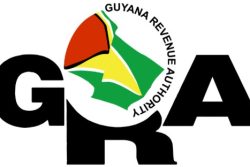Dear Editor,
As Guyana continues to grapple with two unfortunate situations, post-election neurosis and the onslaught of a serious biological threat COVID-19, the need to uphold a firm stance on proper electoral procedures and safeguarding ourselves from contracting the virus are of paramount importance to the nation’s overall welfare. There is a difference of cause between the two: the former is a product of intentional self-infliction, while the latter is due to uncontrollable circumstances. I believe this period of uncertainty and public solitude offers us opportunity to reflect upon the conditions of our society, what foundation it stands on and what must be done to propel the country forward.
For me, it begins with an examination of Guyanese history with an open mind and solidarity kept intact. However, our history has been heavily politicized by the major political parties with narrowness and contrived propaganda. A consequence of this has led to the demonization of cherished Guyanese leaders who fought mutually and cooperatively to attain liberty and independence (prerequisites of sovereignty) for this country. Because of this, we have seen further segregation between two of Guyana’s major race groups—Indos and Afros—both of which have contributed immensely to laying the foundations of this beloved nation.
Fortunately, there is currently an ongoing programme broadcast on the Globespan 24×7 Facebook page titled ‘A Divided Nation’ aired every Wednesday featuring Dr. Baytoram Ramharack as host, Dr. David Hinds and Mr. Ravi Dev as guests discussing aspects of Guyanese history and connecting these with our contemporary or recent social and political difficulties. These individuals have written wonderful literature on the challenges of Guyanese politics, including themes on identity, inclusion, representation, and good governance.
Dr. Ramharack had written a paper titled ‘Consociational Democracy: A Democratic Option for Guyana’ in which he argues consociationalism—a theory of establishing cooperation among ethnic or religious elites for power sharing—would suitably reduce political turmoil in Guyana that has historically been deadlocked along ethnic tension. Dr. Hinds had proposed similar sentiments still to this day favouring power sharing as a viable mechanism, a justification of his that can be read in his paper ‘Problems of Democratic Transition in Guyana: Mistakes and Miscalculations in 1992’.
Their ideas can be contentious and power sharing construed by these individuals, and others, remains debatable.
I disagree with power sharing proposals that seek to enshrine established political elites who have demonstrably contributed to heightened social turmoil and ethnic/racial tensions, not to mention debased virtues and political ills of corruption and nepotism, which have devalued the ideal of nationhood. I would propose we consider some form of participatory democracy as a suitable alternative in our discourse about the political future of Guyana, a system that will empower citizens, not their already powerful representatives, into the governance structure. Ordaining integration, not institutionalized segregation (the de facto), can work.
Ultimately, as Guyanese we owe to each other the humility to listen and the courage to dive into our history to learn about who we are that could assist us with our collective identity. Additionally, it is one thing to say we deserve better but another to justify our cry. For instance, what norms or virtues work in the interest of all, not just me or my group? What we vitally need are conversations that could help us discover what betterment looks like.
Yours faithfully,
Ferlin F. Pedro






